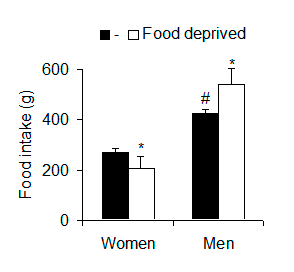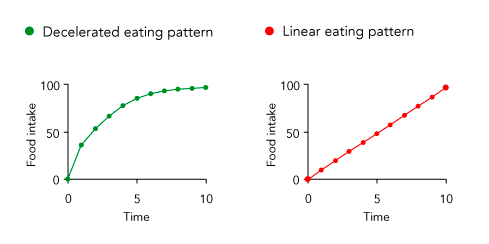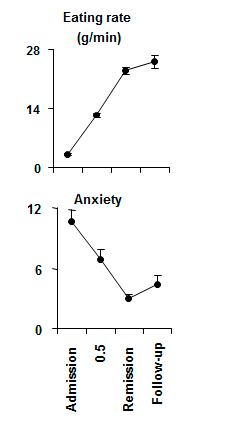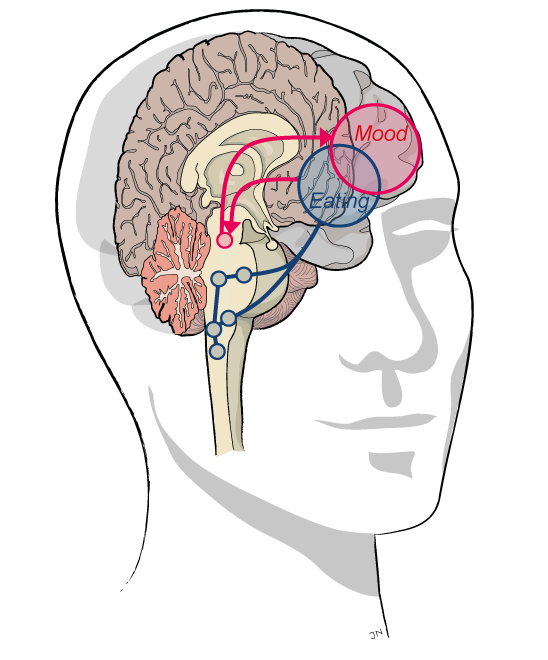The Mandometer Clinics were founded by Cecilia Bergh and Per Södersten. The treatment is based on research on eating behaviour and satiety carried out at the Karolinska Institute.
We eat in much the same way every day, but if we diet and change our eating behaviour, biological changes occur within the body and these can be difficult to reverse without assistance. However, it’s not the fault of the individual who is struggling to maintain their weight; human biology is adapted to survive starvation, and one can recover from starvation without permanent problems.
Patients experience anxiety, depression and obsessive thoughts because they are starving and eating irregularly. These problems decrease and eventually disappear when the patient regains control of eating and body weight normalises.
Per Södersten is a professor at the Karolinska Institute and he directs the research at the Mandometer Clinics. He takes an interest in how we eat, rather than what we eat. The way in which we eat exerts a strong influence on physiology and emotion and abnormal dietary habits and the associated changes in eating behavior have profound influences on brain function. Södersten’s team also study what happens physiologically and psychologically when eating patterns change. As restrictive eating can cause psychological problems, one can reverse these problems by learning to eat normally. Södersten’s research led the development of the technical medical device, the Mandometer®, which is fundamental to our treatment, and used for treating all types of eating disorders, including obesity.
Why do more women than men develop anorexia nervosa?
Women are more likely to develop anorexia nervosa than men because women respond differently to dieting. Almost all women have dieted at some point in their life. Studies have shown that when women reduce the amount of food they eat; they respond by eating less food the following day (white bar is lower than the left bar). In contrast, men eat more than women if they do not diet (compare the black bars) and they eat even more food the next day after skipping dinner the night before (compare the white bars). Men compensate for short term starvation by eating more, but women do not. This biological difference between men and women combined with the strong social pressure on young women means that it is more common for girls/women to suffer from eating disorders.

Two types of eating behaviours
Normal eating behaviour decelerates over the course of a meal; we eat a little faster at the beginning of a meal and then slow down. However, people who have anorexia nervosa or other eating disorders eat at a constant rate; they eat linearly. Decelerate eaters are able to maintain control over their food intake, however, linear eaters find it difficult to maintain control when they have limited time to eat or when there is plenty of food available to eat. The result is a loss of control of food intake and body weight.

Why it is important to learn to eat

Anxiety, obsessive thoughts and depression decrease as eating behaviour normalises.
Pharmacological treatment of eating disorders
- There is no medicine to treat eating disorders
- Antidepressants have a very small effect in bulimia nervosa
- The longterm effects of taking antidepressant medication is not known
Huhn, M m fl. Efficacy of pharmacotherapy and psychotherapy for adult psychiatric disorders: a systematic overview of meta-analyses. JAMA Psychiatry 2014;71:706-715. doi: 10.1001/jamapsychiatry.2014.112.
Mandometer was part of the EU-project SPLENDID together with expert scientists and engineers from five European countries,
developing a personalised guidance system that can monitor and guide young individuals to improve their eating and activity behaviour.
Read more at the SPLENDID website >








